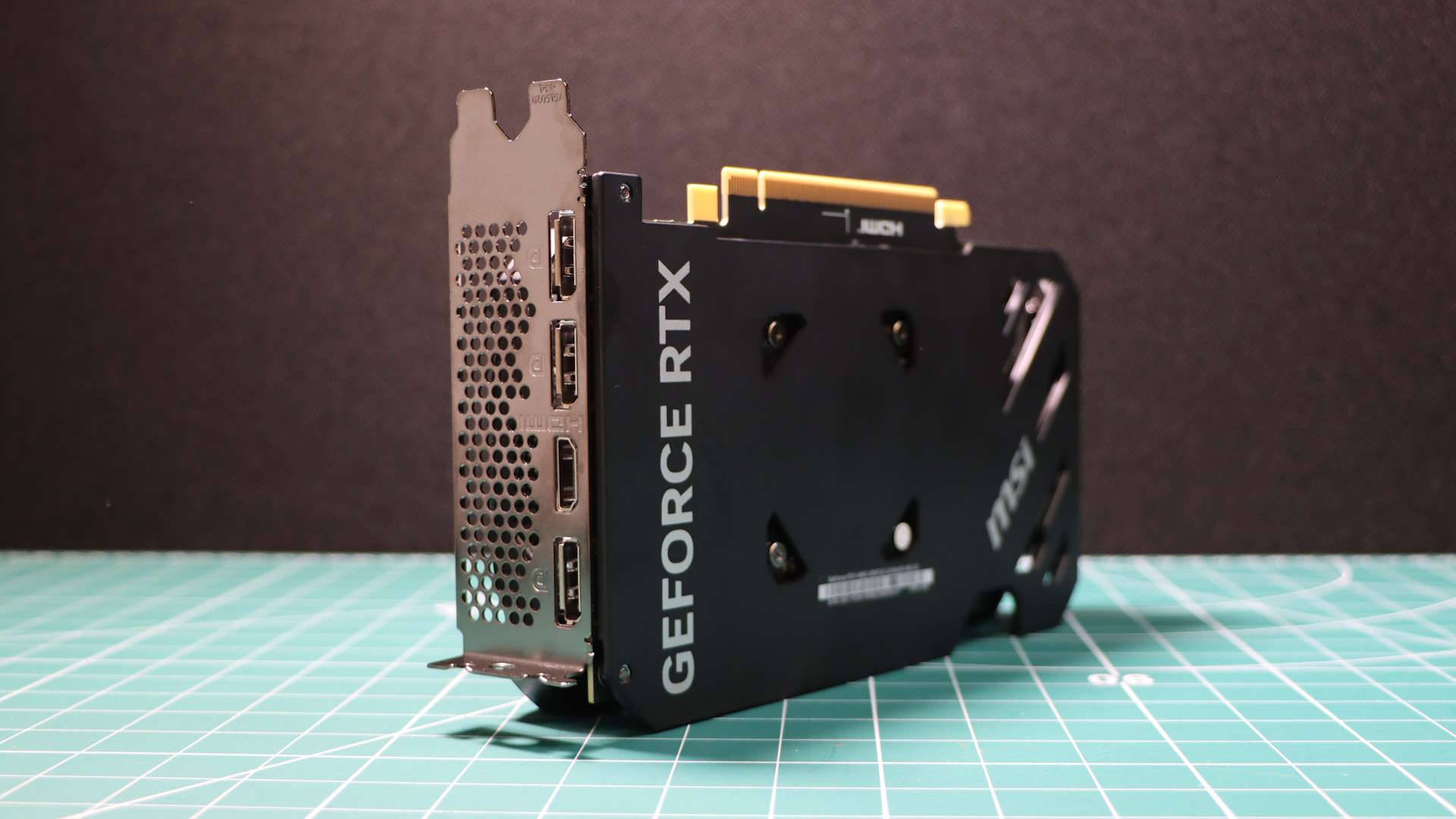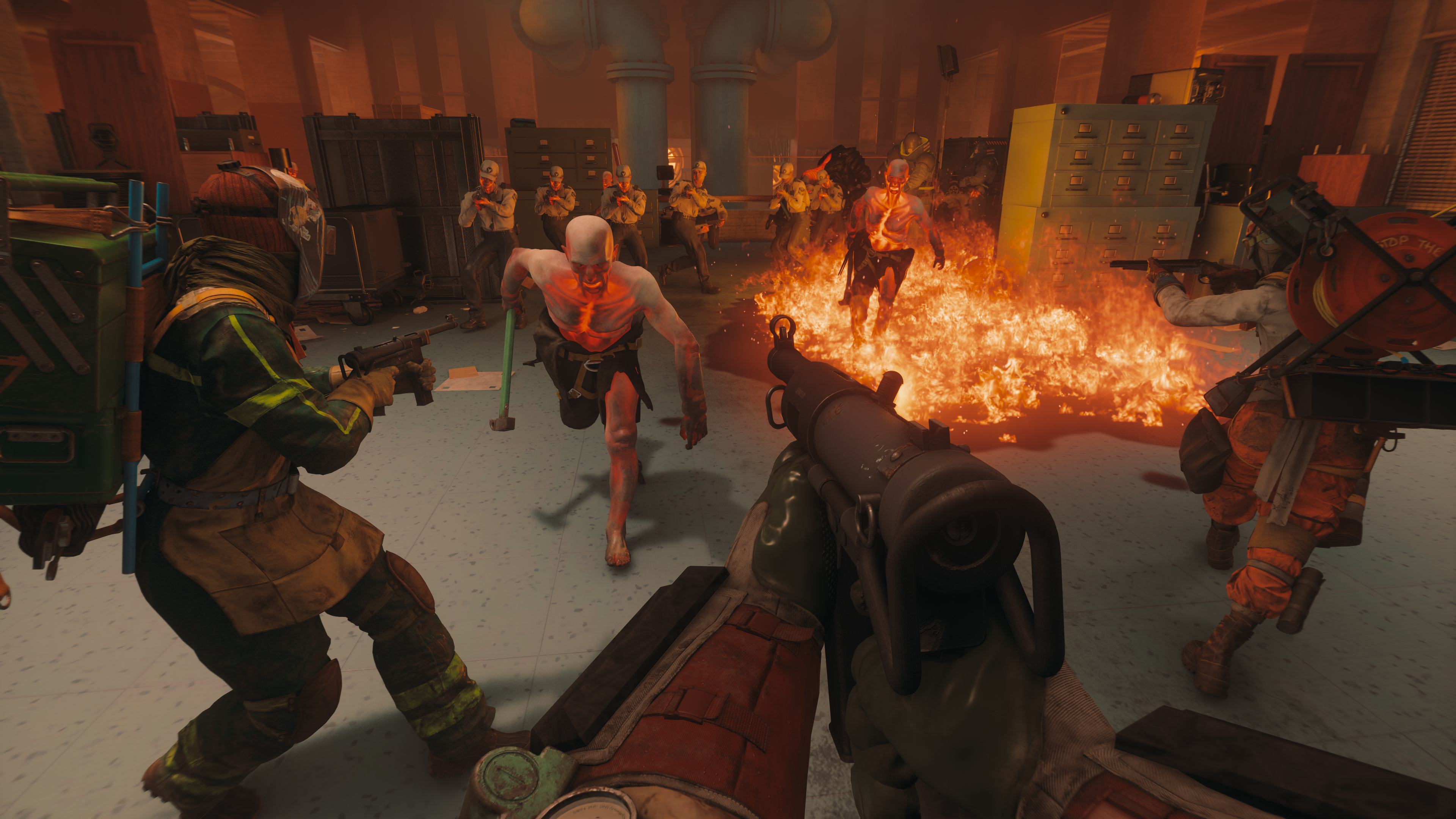
RDNA 2 chips are AMD's best performer, outstripping all the rest of Team Red's GPUs combined.
Another month, another set of results from Valve’s PC hardware survey. It’s comforting to know that some things never change but if you’re Nvidia, then it will be even more comforting to note that one thing has changed—in the space of 12 months, its RTX 40-series of desktop graphics cards and laptop GPUs have an 80% bigger share of all the surveyed machines.
In the October 2023 survey, Ada Lovelace graphics processors accounted for 10% of all the sampled machines, whereas in the latest figures reported, it’s climbed to 17%. While the number itself might not seem all that impressive, it’s a sizeable increase.
For something to increase in this survey, another thing needs to go down and in the case of Nvidia’s GPUs, the GTX 10-series (aka Pascal) saw the biggest drop, going from 16% to 11%.
However, Turing and Ampere (RTX 20- and RTX 30-series, respectively) remain barely unchanged, and the latter still dominates the survey, with over 30% of all the sampled GPUs—the RTX 3060 is the best of them all, accounting for 7% of the survey.
That said, the RTX 4060 (desktop and laptop) is very close behind, taking 5% of the survey’s share of GPUs apiece.
AMD has faired even better, with RDNA 3 chips rising by almost 400% in the survey results, compared to this time last year. But don’t get too excited, as the RX 7000 series still only accounts for 1% of the total survey, and Intel’s Arc chips actually account for 3%, just to rub salt into the wound.
RDNA 2 GPUs have gone from being 2% of the total to around 6% (with the Radeon RX 6600 being the most popular) but AMD’s total share of the survey pales in comparison to Nvidia’s, reflecting the overall GPU market. At least its CPUs are making progress, accounting for just under 37% of all the sampled PCs.
As always, though, one should view the Steam survey results with a degree of caution. Valve doesn’t state the number of sampled machines and it doesn’t provide any details on the sampling method. I’ve always assumed the latter to be done on the basis that Valve’s servers just ping a random selection of accounts to receive the call to participate in the survey, but who knows what it actually does?
Best CPU for gaming: The top chips from Intel and AMD.
Best gaming motherboard: The right boards.
Best graphics card: Your perfect pixel-pusher awaits.
Best SSD for gaming: Get into the game ahead of the rest.
Without any information about the sample size, it’s impossible to say just how well the survey compares to research on global market share, but I keep track of all the monthly statistics just to see if any significant patterns can be discerned.
The main one is that RTX 30-series graphics cards and laptop GPUs are still just as popular as they have been since January 2023, if not more so.
I suspect part of this is because the current RTX 40-series models aren’t exactly what you’d call cheap and if PC gamers had bought their Ampere GPUs during the pandemic when prices were excessively high, they’re probably not going to feel like spending that kind of money again—or at least, not until there’s a noticeable increase in gaming performance.
It’ll be interesting to see when Ampere finally gives up its survey crown and more importantly, what GPU takes over the top slot: Will it be Ada Lovelace in a few more years? Answers on a postcard, please.







